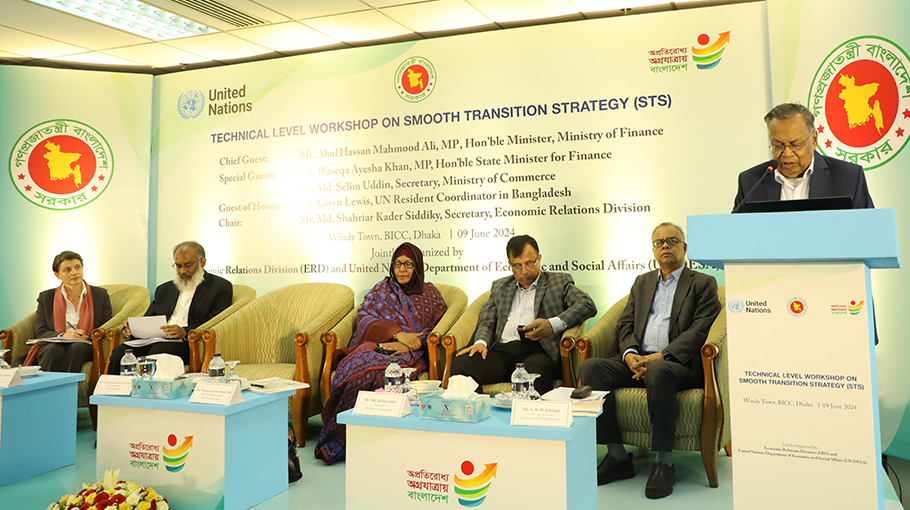Devise LDC graduation strategy in line with 9th FYP
Speakers tell ERD workshop

Bangladesh should formulate its strategy forLDC graduation in line with the country’s upcoming 9th Five Year Plan (FYP), experts and policy makers said at a workshop in the capital on Sunday.
Speakers also said that thatsuch a strategy should be aligned with the country’s long term development goals with a view to avoid the Middle Income Trap.
Their observations came during the Technical Level Workshop on Smooth Transition Strategy (STS).Economic Relations Division (ERD) and United Nations Department of Economic and Social Affairs (UN DESA) jointly organized the workshop.
Finance Minister Abul Hassan Mahmood Ali graced the inaugural session of the workshop as chief guest. State Minister for Finance Waseqa Ayesha Khan and the Secretary of the Ministry of Commerce Md Selim Uddin attended the event as special guests. UN Resident Coordinator in Bangladesh Gwyn Lewis was the guest of honour. ERD Secretary Md. Shahriar Kader Siddiky chaired the event.
It is notable that Bangladesh met all the criteria for graduation from the LDC status in the consecutive 2018 and 2021 triennial reviews of the Committee for Development Policy (CDP) of the United Nations.
Following a five years’ preparatory period, Bangladesh will graduate from the LDC status in November 2026.
Speaking on the occasion, Finance Minister Abul Hassan Mahmood Ali said that Bangladesh could overcome all the challenges if the right policies and strategies are put in place.
‘Our strengths lie in our hardworking people, vibrant entrepreneurs, the young generation and people friendly government under the leadership of Prime Minister Sheikh Hasina’, the Finance Minister said.
UN Resident Coordinator in Bangladesh Gwyn Lewis said that the United Nations system is committed to supporting Bangladesh as it moves towards graduation, with an emphasis on strengthening macroeconomic stability, addressing the challenges of market access, sustaining trade and investment, and accelerating reforms for skills, technology, innovation, and compliance with environmental, social and governance standards.




